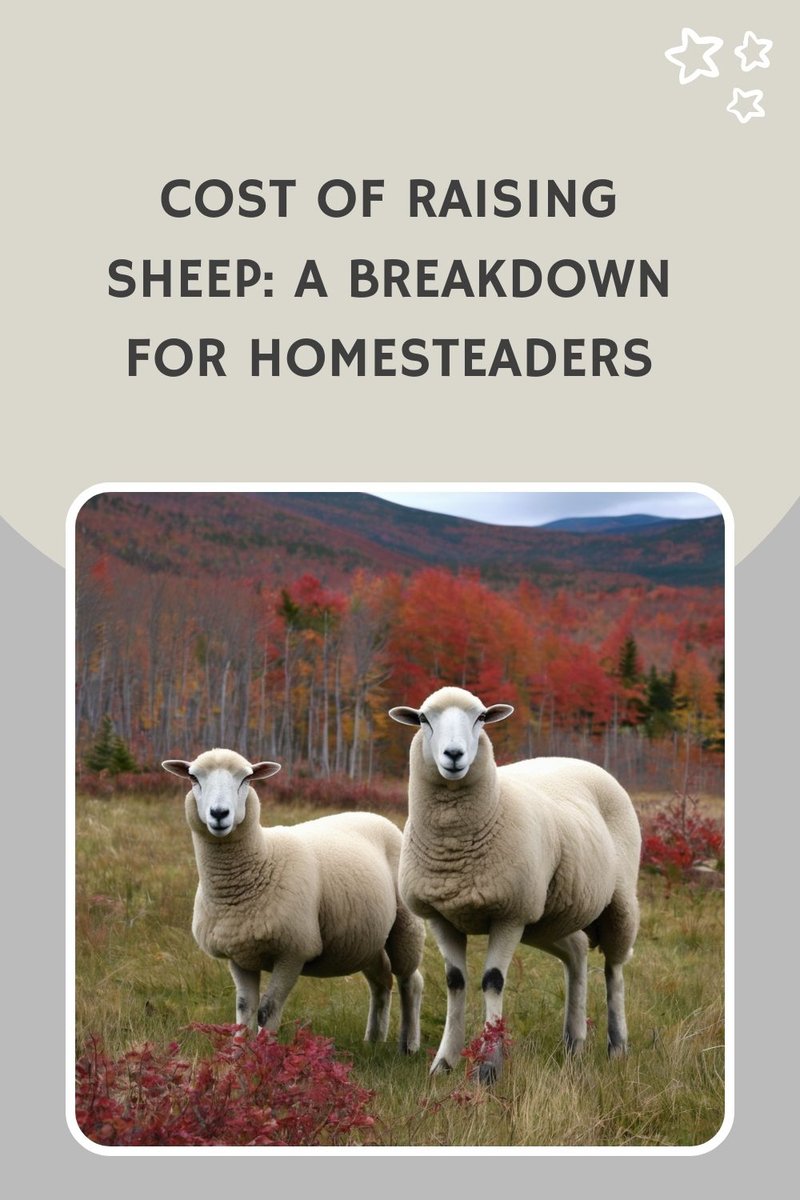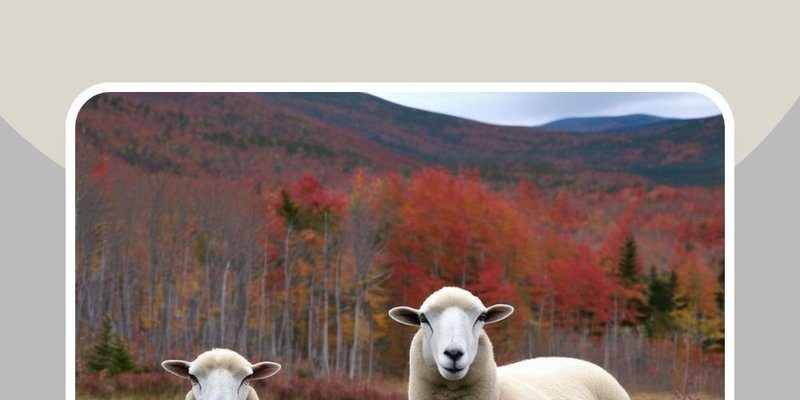
Imagine you’re at a cozy coffee shop, chatting with a friend about starting a small sheep farm. You might picture lush green pastures, fluffy sheep grazing happily, and even the soft sound of their bleating. While that sounds idyllic, it’s important to know what you’re getting into. What will it really cost? Let’s talk about it in a friendly, straightforward way.
Understanding the Initial Costs of Raising Sheep
Before you even buy your first sheep, there are some costs to consider. The initial setup can feel like a big investment, but it’s crucial for your flock’s well-being.
First, you’ll need to think about purchasing the sheep itself. Depending on the breed, sheep can range significantly in price. For example, a simple wool sheep like a Dorset might cost between $200 to $400 each, while show-quality breeds can skyrocket. Besides the sheep, you’ll need to consider fencing. Good fencing is essential to keep your flock safe from predators and to prevent them from wandering off. This initial expense can range from $1,000 to $3,000, depending on the size of your property.
You might also need some basic equipment—like troughs for feeding and waterers. These items can add up, but they are essential for caring for your sheep. In total, expect to shell out anywhere from $2,500 to $5,000 just to get started!
Feed Costs: What You Need to Know
Now let’s chat about feed. Sheep are grazers, which means they’ll spend a good chunk of their time munching on grass. However, if you want them to thrive, you’ll need a balanced diet, including hay, grains, and minerals. Here’s the thing: the cost of feed can fluctuate based on the season and your location.
On average, you can expect to spend around $100 to $150 per month per sheep on feed. If you have a small flock of 5 sheep, that’s about $600 to $900 annually. Additionally, feeding them hay during winter months can increase costs. Buying hay in bulk can often save you money, so keep that in mind!
Don’t forget about minerals and supplements! Sheep need specific nutrients to stay healthy, and this can add another $10 to $20 per month per sheep. It might feel like a lot, but think of it this way: healthy sheep produce better wool and more lambs, so investing in good nutrition pays off.
Veterinary Expenses: Keeping Your Flock Healthy
Veterinary care is another important aspect of the cost of raising sheep. Regular check-ups are crucial to keep your sheep healthy and prevent diseases. Depending on the vet and your location, routine vaccinations and health checks can range from $30 to $75 per sheep annually.
Let me explain further: some sheep might need more medical attention than others. For instance, pregnant ewes often require specialized care, and that can push your vet bills higher. If you ever need emergency care, the costs can really add up quickly—sometimes into the hundreds of dollars.
Don’t forget about preventative medications, like dewormers and hoof care. These costs can add an additional $100 to $200 each year per sheep. When it’s all added up, you might spend anywhere from $150 to $300 annually on veterinary care for each sheep.
Shelter: Creating a Cozy Home for Your Sheep
Shelter is essential for keeping your sheep safe from harsh weather and predators. Building a proper barn or shed can seem like a big task, but it’s worth it. You need something that’s well-ventilated, dry, and secure.
Depending on your location, a simple three-sided shed could cost you around $500 to $1,500, while a fully enclosed barn could range from $2,000 to $10,000. If you already have a barn, you might just need to make some modifications.
Here’s a tip: sheep tend to thrive in clean environments. Make sure you factor in the cost of bedding, which could add another $30 to $50 per month. It’s all about keeping your sheep comfortable and healthy, which ultimately helps your investment pay off.
Insurance and Miscellaneous Costs
You might be wondering about insurance. Just like any other farming venture, having insurance for your sheep can save you a lot of headache down the road. Liability insurance, which protects you in case something happens, can range from $150 to $500 annually. It’s a good idea to look into this early on.
Also, don’t forget to prepare for miscellaneous costs. This might include fencing repairs, extra feed during tough winters, or even equipment that wears out. Having a little cushion in your budget can really save you from any unexpected surprises. On average, setting aside about $200 to $500 per year for miscellaneous costs is a smart move.
Calculating the Total Cost of Raising Sheep
So, what does all this add up to? Let’s break it down for a single sheep over a year:
– Initial Costs: $200 to $400 (one-time cost for buying)
– Feed Costs: $600 to $900
– Vet Expenses: $150 to $300
– Shelter: $50 to $125 (assuming you build it over time)
– Insurance & Miscellaneous: $200 to $500
Adding it all up, you might spend anywhere from $1,800 to $2,400 in the first year for each sheep. This total will lower in subsequent years as long as you maintain your shelter and other infrastructures.
Is Raising Sheep Worth It? A Personal Reflection
Honestly, the costs might seem a bit daunting at first, but raising sheep can be incredibly rewarding. Beyond the financial aspect, think about the joy of having your own flock. Watching them graze peacefully, knowing you’re providing for them, can be fulfilling. And if you decide to dive deeper into sheep farming, you’ll also have the option of selling wool or lambs.
If you’re considering starting small, don’t hesitate to begin with just a couple of sheep. This way, you can learn as you go without feeling overwhelmed. The community around sheep farming is also supportive—you’ll find plenty of resources and friends along the way.
Wrapping It Up: Your Journey with Sheep
Raising sheep involves not just the love for these gentle creatures but also a fair bit of budgeting and planning. Understanding the costs—from feed and vet care to shelter and unexpected expenses—will help you create a healthy environment for your flock.
By taking your time and preparing, you’ll be well on your way to becoming a successful sheep farmer. Remember, like with any great journey, it’s about enjoying each step along the way! If you have any more questions or need further advice, feel free to reach out. Happy farming!

